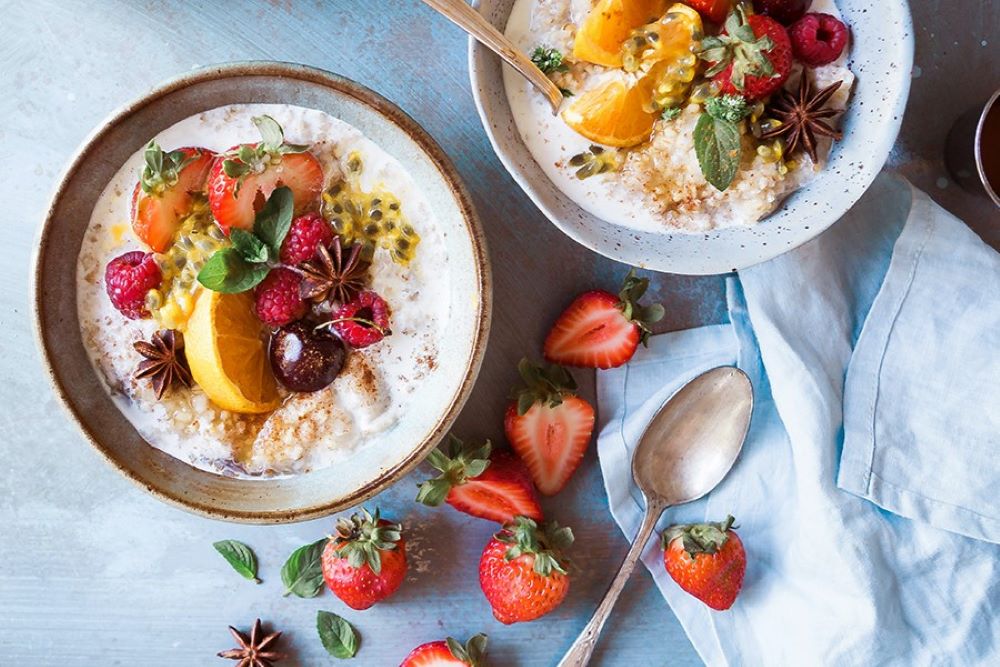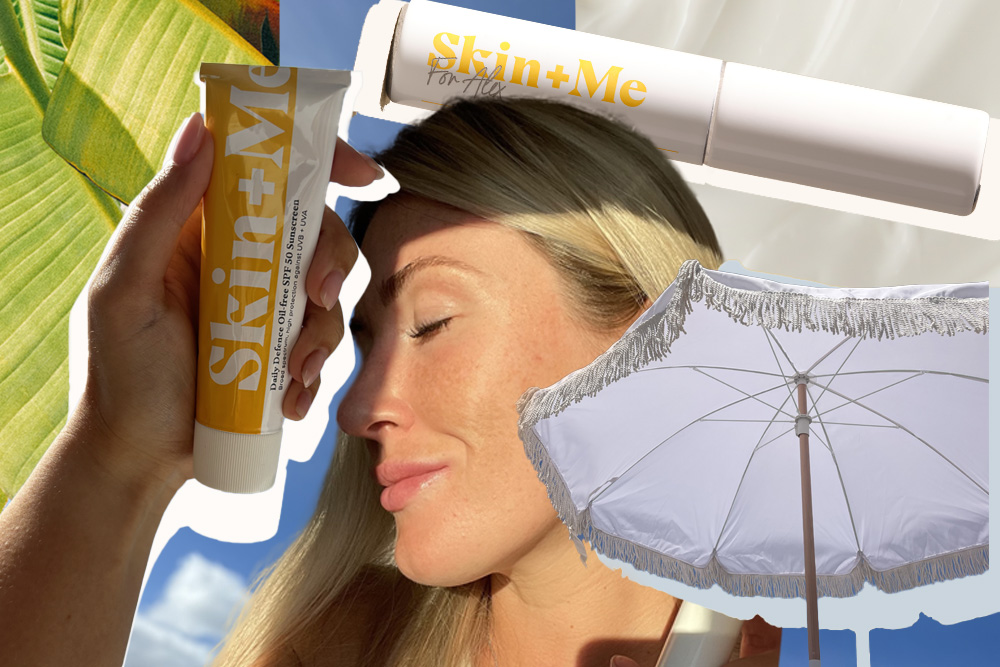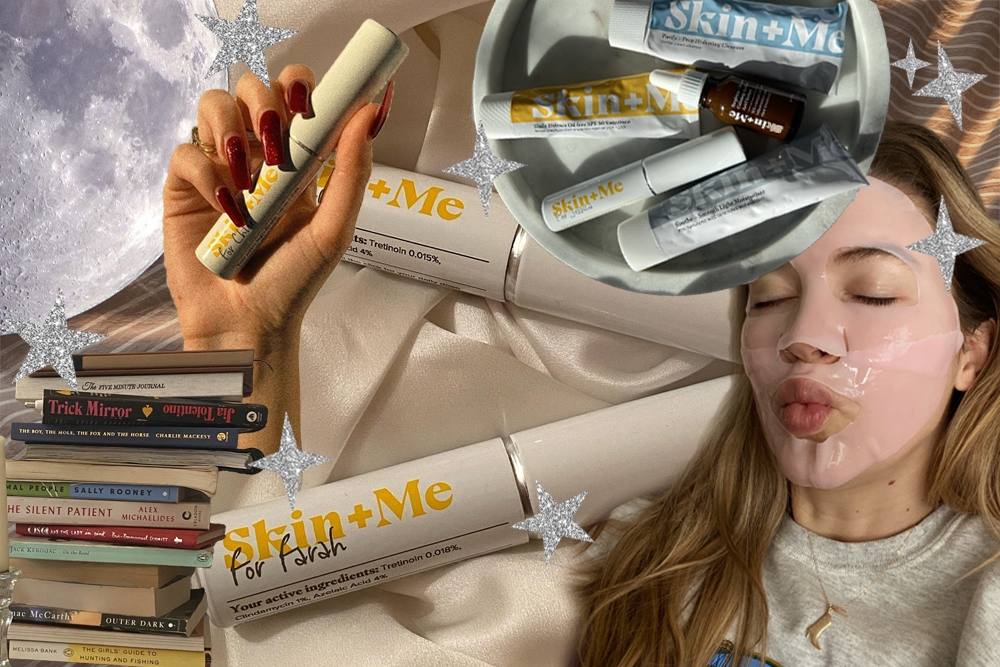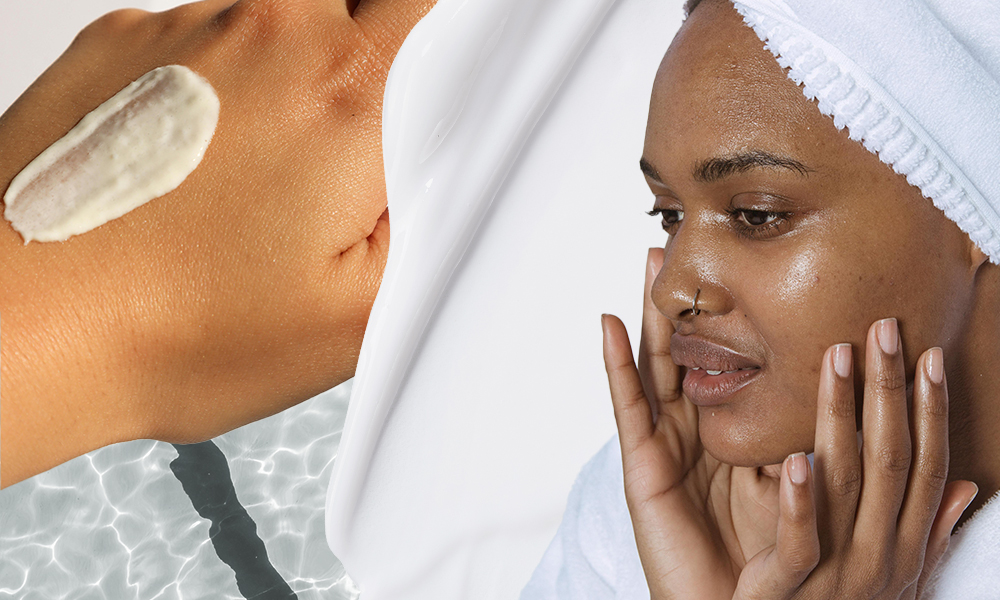Melasma 101

Link to share article here:
We hear a lot about food and diet these days – from nourishing our gut microbiome to skipping ultra-processed foods in favour of quality protein, fats and fibre. But what can these foods do for our skin?
While we’ve come a long way from nineties’ fad diets, and have many more science-led, skin-soothing facts in our arsenal, there’s still a lot of misinformation floating around. Our Dermatology Team is here to help you sort fact from fiction and find out whether you really can eat (and drink) your way to healthier skin. Read on for the team’s expert advice
Is there a link between your diet and skin?
Yes, 100% – but it’s rarely simple. “Our understanding of the impact food can have on our health and skin has hugely increased in recent years,” explains Dr Malvina Cunningham, Consultant Dermatologist. “We now know that there is a significant relationship between our diet and skin health, although we are learning that this relationship is complex and individual.”
In fact, according to the Journal of Aesthetic and Clinical Dermatology, “research has uncovered significant evidence that dietary considerations may be important in some dermatological conditions”, including acne, skin ageing, psoriasis and even skin cancer.
Understanding the gut-skin axis
All of the food you eat affects your gut microbiome – and with that, your skin. Think about your daily intake – your morning cereal (fibre, vitamins and minerals), your lunchtime salad (protein, calcium and fats), your afternoon cappuccino (caffeine, dairy and sugar), then the curry you have for dinner (oils, carbohydrates and fibre). As that food makes its way through your digestive system, your body metabolises it, breaking it down via enzymes and organisms.
These enzymes, organisms, and trillions of other bacteria make up the gut microbiome – and they require some serious TLC. If we disrupt our skin microbiome (remember, your skin is an organ – your largest one, in fact) we notice it pretty quickly – think red skin, dry patches, breakouts. If our gut microbiome takes a hit, it can present all over the body. Inflammation can cause not just upset stomachs, but can affect skin conditions like acne, psoriasis and rosacea too.
Dr Malvina explains that food rich in refined carbohydrates, added sugar and unhealthy fats can contribute to inflammation across the whole body. “High glycaemic index foods can cause spikes in blood sugar levels, which can lead to blocked pores, breakouts and even premature ageing.”
A 2012 study found that a 10-week low carbohydrate diet improved subjects’ acne – with skin analysis showing less inflammation.
So, if you’ve tried a topical treatment for your skin concerns, and aren’t seeing results, a change in your diet may be next on your list.
How can I improve my skin health through my diet?
Get your five-a-day
Eating unprocessed, whole foods, and plenty of them, is the best way to keep your gut (and by extension, your skin) healthy and happy. That’s because these foods are natural sources of the essential vitamins and minerals our bodies need.
That’s not to say you have to cut out your favourite treats completely, but the ‘everything in moderation’ adage applies here.
Switch up your usual go-tos
In addition to fruit and vegetables, variety in your diet is key to a good gut. Beans, pulses, complex carbohydrates, whole grains, nuts, seeds, herbs and spices (think turmeric, ginger and garlic), are all cited as hero foods for healthy digestion.
According to Nutrients (a peer-reviewed journal of human nutrition), “fermented foods have been linked positively with human health [since] the early 1900s.”
So, foods like kimchi, sauerkraut and kefir help your gut by introducing different bacteria to the mix – boosting our immune systems and reducing inflammation.
Cook your own food
Grab-and-go food is fine in a pinch, but making your own meals regularly is the best way to ensure you’re hitting all your nutrition needs. Whether that’s meal prepping on a Sunday before work, or making time to cook in the evenings, your skin will thank you later.
Keep a food diary
This is worth doing if you’re looking to narrow down the causes of your skin concerns, such as rosacea or psoriasis, especially if you suspect that sugar, dairy (which contains lactose, a type of sugar), wheat or alcohol are the potential culprits.
Even if it’s inconclusive, bringing this to your GP can help them rule out potential causes.
Only take supplements for what you need
According to the NHS, vitamin D is the only nutrient we should all be supplementing – especially in winter – as our skin doesn’t absorb enough sunlight, and most of the population is generally deficient.
While it is generally safe to take dietary supplements, eating a balanced and varied diet will give you all the vitamins and minerals you need.
Get enough sleep and exercise
Making time for these all-important health factors is just as important as your diet.
Sleep is how our bodies recharge, and though the amount of sleep we need changes as we age, getting between seven and nine hours a night is always a good idea.
Dr Jason Thomson, Head of Medical at Skin + Me reminds us, “when we sleep our skin goes into rest and repair mode. It’s when our skin regenerates itself without any interference from UVA, UVB light, or stress, so sleep well and your skin will look healthy and rested.”
Exercise is also key to holistic health and wellbeing. Even taking a 30-minute walk after a meal can improve your mental health, minimise spikes in blood sugar and ease overall digestion.
Minimise stress
This is easier said than done, but it’s worth trying to find ways to limit stress, due to its effect on the body.
“We’ve known for a long time that stress can worsen skin conditions such as psoriasis, acne, rosacea and eczema,” Dr Jason explains. “Research has identified a complex stress response system, known as the ‘brain-skin connection’, which involves the immune system, the brain and the skin driving the underlying biology.”
Dr Malvina adds, “stress causes the release of cortisol, a hormone that helps us deal with anxiety, which can lead to skin inflammation and sensitivity, and issues like acne, rosacea or eczema. It also slows down the skin’s natural ability to heal itself.”
Excess cortisol can also send your sebaceous glands into overdrive and block your pores – which is why you might notice more spots when you’re stressed – and can inhibit the production of hyaluronic acid, a substance that provides elasticity and softness to the skin. When this slows, our skin is more prone to the early signs of ageing, like fine lines, wrinkles and uneven skin texture.
Key takeaways
Like most things, the key to good skin health is balance. We would never tell you to pass on chocolate – and it’s absolutely fine to enjoy your favourite treats – just make sure you’re also getting plenty of the good stuff. This will help your skin health, your gut health, and everything in between. And remember, food is fuel! Make the most of it by spicing up your meals (in some cases, literally) and finding recipes that fit in with your lifestyle.
New to Skin + Me? Get your first month of personalised skincare for £4.99 with promo code DOSE – complete our quick consultation here.
Looking for a routine refresh? Add the Dream Routine to your Skin + Me subscription.
In need of a restock? Head to The Skincare Shop for one-off purchases of your Routine Essentials.



